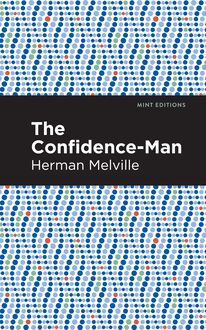-
 Univers
Univers
-
 Ebooks
Ebooks
-
 Livres audio
Livres audio
-
 Presse
Presse
-
 Podcasts
Podcasts
-
 BD
BD
-
 Documents
Documents
-
- Cours
- Révisions
- Ressources pédagogiques
- Sciences de l’éducation
- Manuels scolaires
- Langues
- Travaux de classe
- Annales de BEP
- Etudes supérieures
- Maternelle et primaire
- Fiches de lecture
- Orientation scolaire
- Méthodologie
- Corrigés de devoir
- Annales d’examens et concours
- Annales du bac
- Annales du brevet
- Rapports de stage
La lecture à portée de main
Vous pourrez modifier la taille du texte de cet ouvrage
Découvre YouScribe en t'inscrivant gratuitement
Je m'inscrisDécouvre YouScribe en t'inscrivant gratuitement
Je m'inscrisEn savoir plus
Vous pourrez modifier la taille du texte de cet ouvrage
En savoir plus

Description
A decade after their wild boat ride adventure on the Thames river, J, Harris, and George reunite for another vacation. Older, richer, and fatter, but not wiser, the three men stumble through mishaps and surprises as they journey to Germany. First saying their goodbyes, J and Harris seek the approval of their wives, worried about leaving their kids. Their wives are supportive, secretly considering their husbands’ trip from home as a vacation for themselves as well. Still a bachelor, George tells his aunt about the trip before they depart. First arriving in a boat, the men journey through Germany, stopping in Hamburg, Hanover, and Berlin. When they are able, they stay in hotels and inns, and when they are desperate, the sleep in the barns of kind farmers. After a long journey, the men finally arrive at their destination. Planning on completing a cycling tour through the German Black Forest, the men take a single rider and a tandem bicycle, making a solemn compromise to take turns being the solo rider. As they set out on their bike ride, the friends are amazed by the beauty and serenity of the forest, until they start to realize that everything looks familiar. Lost in the woods and going in circles, the three men must find a way home from their adventure before they get caught in the impending rain storm.
Through sketches and detailed observations, Jerome K. Jerome’s Three Men on the Bummel provides a fascinating perspective on the landscape and culture of 20th century Germany. With drunken adventures, sword fights, and misfortunate weather, Three Men on the Bummel is an exciting and charming travelogue, humorous and enjoyable even for modern audiences.
This edition of Three Men on the Bumel by Jerome K. Jerome is presented in an easy-to-read font and features an eye-catching new cover design. With these accommodations, this edition is accessible and appealing to contemporary audiences, restoring Jerome K Jerome’s work to modern standards while preserving the original wit and charm of Three Men on the Bummel.
Sujets
Informations
| Publié par | Mint Editions |
| Date de parution | 09 mars 2021 |
| Nombre de lectures | 0 |
| EAN13 | 9781513279022 |
| Langue | English |
| Poids de l'ouvrage | 1 Mo |
Informations légales : prix de location à la page 0,0450€. Cette information est donnée uniquement à titre indicatif conformément à la législation en vigueur.
Extrait
Three Men on the Bummel
Jerome K. Jerome
Three Men on the Bummel was first published in 1900.
This edition published by Mint Editions 2021.
ISBN 9781513278568 | E-ISBN 9781513279022
Published by Mint Editions®
minteditionbooks .com
Publishing Director: Jennifer Newens
Design & Production: Rachel Lopez Metzger
Project Manager: Micaela Clark
Typesetting: Westchester Publishing Services
C ONTENTS I II III IV V VI VII VIII IX X XI XII XIII XIV
I
T HREE MEN NEED CHANGE —A NECDOTE SHOWING EVIL RESULT OF DECEPTION —M ORAL COWARDICE OF G EORGE —H ARRIS HAS IDEAS —Y ARN OF THE A NCIENT M ARINER AND THE I NEXPERIENCED Y ACHTSMAN —A HEARTY CREW —D ANGER OF SAILING WHEN THE WIND IS OFF THE LAND —I MPOSSIBILITY OF SAILING WHEN THE WIND IS OFF THE SEA —T HE ARGUMENTATIVENESS OF E THELBERTHA —T HE DAMPNESS OF THE RIVER —H ARRIS SUGGESTS A BICYCLE TOUR —G EORGE THINKS OF THE WIND —H ARRIS SUGGESTS THE B LACK F OREST —G EORGE THINKS OF THE HILLS —P LAN ADOPTED BY H ARRIS FOR ASCENT OF HILLS —I NTERRUPTION BY M RS . H ARRIS .
“What we want,” said Harris, “is a change.”
At this moment the door opened, and Mrs. Harris put her head in to say that Ethelbertha had sent her to remind me that we must not be late getting home because of Clarence. Ethelbertha, I am inclined to think, is unnecessarily nervous about the children. As a matter of fact, there was nothing wrong with the child whatever. He had been out with his aunt that morning; and if he looks wistfully at a pastrycook’s window she takes him inside and buys him cream buns and “maids-of-honour” until he insists that he has had enough, and politely, but firmly, refuses to eat another anything. Then, of course, he wants only one helping of pudding at lunch, and Ethelbertha thinks he is sickening for something. Mrs. Harris added that it would be as well for us to come upstairs soon, on our own account also, as otherwise we should miss Muriel’s rendering of “The Mad Hatter’s Tea Party,” out of Alice in Wonderland . Muriel is Harris’s second, age eight: she is a bright, intelligent child; but I prefer her myself in serious pieces. We said we would finish our cigarettes and follow almost immediately; we also begged her not to let Muriel begin until we arrived. She promised to hold the child back as long as possible, and went. Harris, as soon as the door was closed, resumed his interrupted sentence.
“You know what I mean,” he said, “a complete change.”
The question was how to get it.
George suggested “business.” It was the sort of suggestion George would make. A bachelor thinks a married woman doesn’t know enough to get out of the way of a steam-roller. I knew a young fellow once, an engineer, who thought he would go to Vienna “on business.” His wife wanted to know “what business?” He told her it would be his duty to visit the mines in the neighbourhood of the Austrian capital, and to make reports. She said she would go with him; she was that sort of woman. He tried to dissuade her: he told her that a mine was no place for a beautiful woman. She said she felt that herself, and that therefore she did not intend to accompany him down the shafts; she would see him off in the morning, and then amuse herself until his return, looking round the Vienna shops, and buying a few things she might want. Having started the idea, he did not see very well how to get out of it; and for ten long summer days he did visit the mines in the neighbourhood of Vienna, and in the evening wrote reports about them, which she posted for him to his firm, who didn’t want them.
I should be grieved to think that either Ethelbertha or Mrs. Harris belonged to that class of wife, but it is as well not to overdo “business”—it should be kept for cases of real emergency.
“No,” I said, “the thing is to be frank and manly. I shall tell Ethelbertha that I have come to the conclusion a man never values happiness that is always with him. I shall tell her that, for the sake of learning to appreciate my own advantages as I know they should be appreciated, I intend to tear myself away from her and the children for at least three weeks. I shall tell her,” I continued, turning to Harris, “that it is you who have shown me my duty in this respect; that it is to you we shall owe—”
Harris put down his glass rather hurriedly.
“If you don’t mind, old man,” he interrupted, “I’d really rather you didn’t. She’ll talk it over with my wife, and—well, I should not be happy, taking credit that I do not deserve.”
“But you do deserve it,” I insisted; “it was your suggestion.”
“It was you gave me the idea,” interrupted Harris again. “You know you said it was a mistake for a man to get into a groove, and that unbroken domesticity cloyed the brain.”
“I was speaking generally,” I explained.
“It struck me as very apt,” said Harris. “I thought of repeating it to Clara; she has a great opinion of your sense, I know. I am sure that if—”
“We won’t risk it,” I interrupted, in my turn; “it is a delicate matter, and I see a way out of it. We will say George suggested the idea.”
There is a lack of genial helpfulness about George that it sometimes vexes me to notice. You would have thought he would have welcomed the chance of assisting two old friends out of a dilemma; instead, he became disagreeable.
“You do,” said George, “and I shall tell them both that my original plan was that we should make a party—children and all; that I should bring my aunt, and that we should hire a charming old chateau I know of in Normandy, on the coast, where the climate is peculiarly adapted to delicate children, and the milk such as you do not get in England. I shall add that you over-rode that suggestion, arguing we should be happier by ourselves.”
With a man like George kindness is of no use; you have to be firm.
“You do,” said Harris, “and I, for one, will close with the offer. We will just take that chateau. You will bring your aunt—I will see to that,—and we will have a month of it. The children are all fond of you; J. and I will be nowhere. You’ve promised to teach Edgar fishing; and it is you who will have to play wild beasts. Since last Sunday Dick and Muriel have talked of nothing else but your hippopotamus. We will picnic in the woods—there will only be eleven of us,—and in the evenings we will have music and recitations. Muriel is master of six pieces already, as perhaps you know; and all the other children are quick studies.”
George climbed down—he has no real courage—but he did not do it gracefully. He said that if we were mean and cowardly and false-hearted enough to stoop to such a shabby trick, he supposed he couldn’t help it; and that if I didn’t intend to finish the whole bottle of claret myself, he would trouble me to spare him a glass. He also added, somewhat illogically, that it really did not matter, seeing both Ethelbertha and Mrs. Harris were women of sense who would judge him better than to believe for a moment that the suggestion emanated from him.
This little point settled, the question was: What sort of a change?
Harris, as usual, was for the sea. He said he knew a yacht, just the very thing—one that we could manage by ourselves; no skulking lot of lubbers loafing about, adding to the expense and taking away from the romance. Give him a handy boy, he would sail it himself. We knew that yacht, and we told him so; we had been on it with Harris before. It smells of bilge-water and greens to the exclusion of all other scents; no ordinary sea air can hope to head against it. So far as sense of smell is concerned, one might be spending a week in Limehouse Hole. There is no place to get out of the rain; the saloon is ten feet by four, and half of that is taken up by a stove, which falls to pieces when you go to light it. You have to take your bath on deck, and the towel blows overboard just as you step out of the tub. Harris and the boy do all the interesting work—the lugging and the reefing, the letting her go and the heeling her over, and all that sort of thing,—leaving George and myself to do the peeling of the potatoes and the washing up.
“Very well, then,” said Harris, “let’s take a proper yacht, with a skipper, and do the thing in style.”
That also I objected to. I know that skipper; his notion of yachting is to lie in what he calls the “offing,” where he can be well in touch with his wife and family, to say nothing of his favourite public-house.
Years ago, when I was young and inexperienced, I hired a yacht myself. Three things had combined to lead me into this foolishness: I had had a stroke of unexpected luck; Ethelbertha had expressed a yearning for sea air; and the very next morning, in taking up casually at the club a copy of the Sportsman , I had come across the following advertisement:—
T O Y ACHTSMEN
Unique Opportunity.—“Rogue,” 28-ton Yawl.—Owner, called away suddenly on business, is willing to let this superbly-fitted “greyhound of the sea” for any period short or long. Two cabins and saloon; pianette, by Woffenkoff; new copper. Terms, 10 guineas a week.—Apply Pertwee and Co., 3A Bucklersbury.
It had seemed to me like the answer to a prayer. “The new copper” did not interest me; what little washing we might want could wait, I thought. But the “pianette by Woffenkoff” sounded alluring. I pictured Ethelbertha playing in the evening—something with a chorus, in which, perhaps, the crew, with a little training, might join—while our moving home bounded, “greyhound-like,” over the silvery billows.
I took a cab and drove direct to 3A Bucklersbury. Mr. Pertwee was an unpretentious-looking gentleman, who had an unostentatious office on the third floor. He showed me a picture in water-colours of the Rogue flying before the wind. The deck was at an angle of 95 to the ocean. In the picture no human beings were represented on the deck; I suppose they had slipped off. Indeed, I do not see how anyone could have kept on, unless nailed. I pointed out this disadvantage to the agent, who, however,
-
 Univers
Univers
-
 Ebooks
Ebooks
-
 Livres audio
Livres audio
-
 Presse
Presse
-
 Podcasts
Podcasts
-
 BD
BD
-
 Documents
Documents
-
Jeunesse
-
Littérature
-
Ressources professionnelles
-
Santé et bien-être
-
Savoirs
-
Education
-
Loisirs et hobbies
-
Art, musique et cinéma
-
Actualité et débat de société
-
Jeunesse
-
Littérature
-
Ressources professionnelles
-
Santé et bien-être
-
Savoirs
-
Education
-
Loisirs et hobbies
-
Art, musique et cinéma
-
Actualité et débat de société
-
Actualités
-
Lifestyle
-
Presse jeunesse
-
Presse professionnelle
-
Pratique
-
Presse sportive
-
Presse internationale
-
Culture & Médias
-
Action et Aventures
-
Science-fiction et Fantasy
-
Société
-
Jeunesse
-
Littérature
-
Ressources professionnelles
-
Santé et bien-être
-
Savoirs
-
Education
-
Loisirs et hobbies
-
Art, musique et cinéma
-
Actualité et débat de société
- Cours
- Révisions
- Ressources pédagogiques
- Sciences de l’éducation
- Manuels scolaires
- Langues
- Travaux de classe
- Annales de BEP
- Etudes supérieures
- Maternelle et primaire
- Fiches de lecture
- Orientation scolaire
- Méthodologie
- Corrigés de devoir
- Annales d’examens et concours
- Annales du bac
- Annales du brevet
- Rapports de stage



















